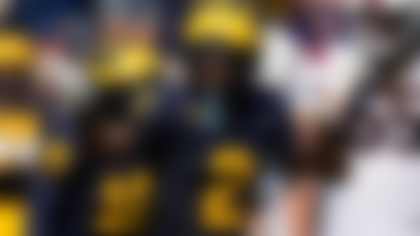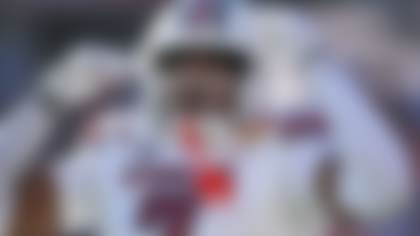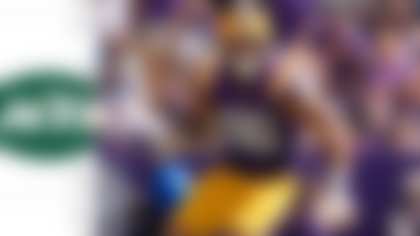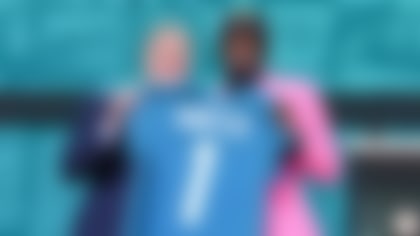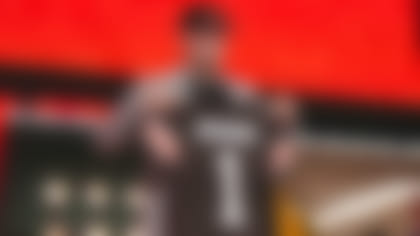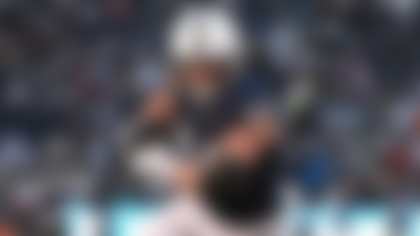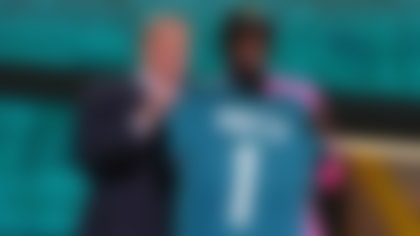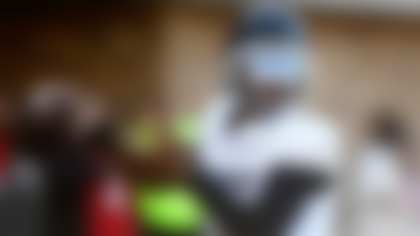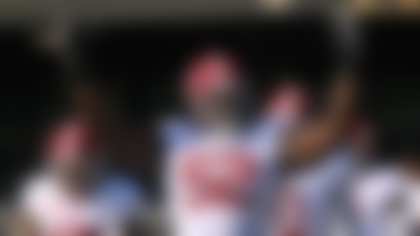To celebrate Super Bowl 50, NFL Media's Elliot Harrison is looking back at each of the 19 Super Bowl rematches on the regular-season schedule in 2015, revisiting the clashes of the past as former Super Sunday opponents square off once again.
This Sunday's rematch: Dallas Cowboys at Buffalo Bills, 1 p.m. ET.
Reunites the combatants from: Super Bowl XXVIII (Cowboys 30, Bills 13) and Super Bowl XXVII (Cowboys 52, Bills 17).
If there ever was a cliché from antique-buying that applied to pro football, it is this: One man's trash is another man's treasure.
James Harrison was Defensive Player of the Year in 2008 and authored one of the most exciting defensive plays in Super Bowl history in Super Bowl XLIII. He also went undrafted and was cut three times by the Steelers and once by the Ravens, and even wound up on the Rhein Fire, before rising to glory. That was a big-time team ... in NFL Europe. And before becoming the MVP of Super Bowl V with the Dallas Cowboys, Chuck Howley ran a gas station after an abbreviated, unsuccessful stint with the Chicago Bears.
Super Bowl XXVIII featured its own unheralded hero, a player who was plucked off the NFL's late-1980s version of the scrap heap: Plan B free agency. Before God told Reggie White to sign in Green Bay, and before Deion Sanders was being recruited like a college freshman, the league had what you might call a poor man's free-market system. From 1989 to 1992, players could sign wherever they wanted -- if they were not one of the 37 players protected on a team's roster.
The man who coincidentally wore No. 37 on the Dallas Cowboys, safety James Washington, made two huge plays in the win over the Buffalo Bills in Super Bowl XXVIII. And Washington was not one of the 37 protected players on John Robinson's Rams roster in 1990, which is why he was on this incredibly loaded Cowboys team in the first place.
Some players who signed as Plan B free agents over the years, like Roger Craig, Ronnie Lott and Otis Wilson, had names that rung a bell, but they were all past their prime. As for Washington, who had barely played in two years with Los Angeles and had a history of knee problems, well, let's just say he was not highly sought-after -- there were no football cards of his to be found.
Washington was just trying to get his career going in Dallas. He became a starter his first season there, in 1990, then lost that gig in 1993. But on Jan. 30, 1994, every football fan in America would learn Washington's name.
Put another way, without Washington's involvement in two second-half turnovers against the Bills, Jimmy Johnson's beautiful coif might not be on your TV set every Sunday morning, and Steve Tasker wouldn't still be waiting for a call from Canton.
Buffalo had come to play in this Super Bowl. After getting blown out each of the previous two years, once at the hands of Mark Rypien's Redskins and once at the hands of these same Cowboys, the Bills had something more than legacy at stake: pride.
Leading 13-6 at halftime, and with the ball coming back to them to open up the second half, Marv Levy's group was in position to win the team's first Lombardi Trophy. All they had to do was run the football with Thurman Thomas and Kenneth Davis, and not commit any turnovers like the nine they committed in the Super Bowl fiasco against Dallas the year prior.
Umm ... oops.
On the third offensive play of the half, Thomas took an inside handoff and got popped by Leon Lett. With the ball weeble-wobbling around like an Easter egg dropped in a bucket, a hunt for the pigskin ensued -- and it ended in the cradling arms of Washington, who scooped it clean off the Georgia Dome turf. Washington immediately smelled big play, breaking left, cutting back to his right to avoid another Bills tackler, then zinging to his left inside the 10 and trotting into the end zone.
It was the game-changing play of Super Bowl XXVIII by a guy no one had ever deemed a game changer ... or even a game influencer, for that matter. Not that the man who forced Thomas' cough-up in the first place was a proven commodity, either. Lett was a former seventh-round pick out of Emporia State, and his claim to fame was gloating too early in the previous year's Super Bowl on the famous Don Beebe strip.
Washington made sure fans -- and the guys running the Bills' "K-Gun" offense -- noticed him again, forcing the second major turnover of an ill-fated second half for quarterback Jim Kelly. The Buffalo quarterback never saw Washington break on a ball intended for Beebe on the first play of the fourth quarter. Washington perfectly read the pass over the middle, breaking at just the right instant, then producing a healthy return to the Buffalo 39. That would set up Emmitt Smith's second touchdown of the day, giving Dallas a 27-13 lead, and the Cowboys never looked back.
Smith -- 30 carries, 132 rushing yards and two rushing touchdowns -- was named the game's MVP. But truthfully, the '93 Cowboys carried more than enough MVPs in their holster to take out Buffalo or any other AFC sacrificial lamb. Smith, Troy Aikman, Michael Irvin, Alvin Harper, Jay Novacek (a Plan B signing himself), Charles Haley ... you could go on and on.
Yet, so many fans in Dallas and across the country were talking about a little-known safety who made some very large hay ... in the biggest game of the year.
Did you know?
Super Bowl XXVIII marked the Bills' fourth straight appearance in the Super Bowl, besting the previous mark of three held by the 1971-73 Miami Dolphins. No team since has made it to four straight.
Follow Elliot Harrison on Twitter @HarrisonNFL.


